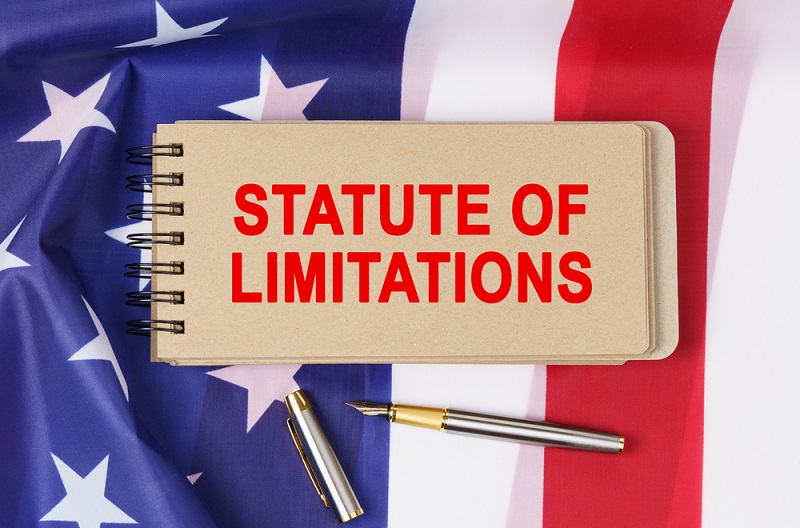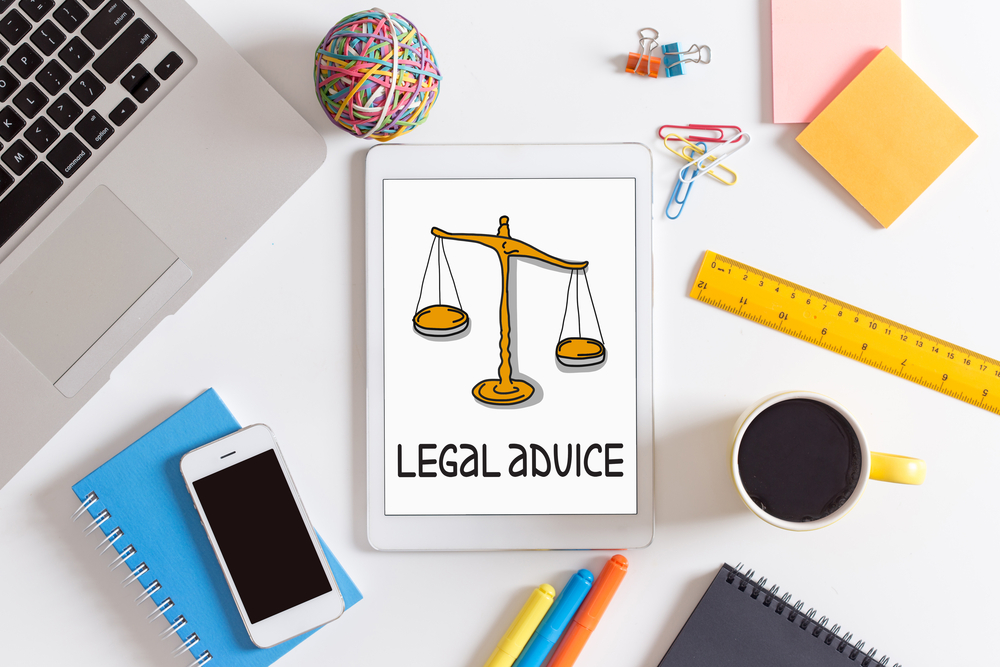Personal injury law can be complex and confusing for those unfamiliar with legal proceedings. This comprehensive guide, created by our writers, who are experts in legal content writing, aims to address the frequently asked questions that arise in personal injury cases. If you want to add more content to your law firm’s blog, and your legal blog writer isn’t sure what to write, FAQs are a good place to begin. Legal content writing must be informative rather than advisory, but frequently asked questions are the kinds of questions people ask search engines, so it’s helpful to provide some non-specific answers. You might even get picked for a Google Snippet, which is great local SEO for lawyers. Whether you’re considering filing a claim or simply want to better understand your rights, these 50 FAQs will provide valuable insights into the personal injury legal process. 1. What is considered a personal injury case? A personal injury case involves situations where an individual suffers harm due to another party’s intentional actions or negligence. Common examples include car accidents, slip and falls, and medical malpractice. There are 39.5 million cases requiring medical treatment in the US each year. 2. How long do I have to file a personal injury lawsuit? There is a time limit on filing a personal injury case, which is called the statute of limitations. This varies according to the state and type of case. Generally, it ranges from 1-6 years, but it’s crucial to consult with an attorney as soon as possible. 3. What types of compensation can I receive in a personal injury case? Compensation may include medical expenses, lost wages, emotional harm, and more. 4. Do I need a lawyer for my personal injury case? You don’t have to hire a lawyer but having an experienced personal injury attorney can significantly improve your chances of a favorable outcome. There were 48,373 personal injury law firms registered in 2023. 5. How much does it cost to hire a personal injury lawyer? Most personal injury lawyers charge contingency fees, meaning they only get paid if you win your case. Typically, they take a percentage of the settlement or award. 6. What if I’m partially at fault for my injury? Many states follow comparative negligence laws, which may reduce your compensation based on your percentage of fault. Some states, including Maine and Colorado, bar recovery if you’re more than 50% at fault. 7. How long does a personal injury case typically take? The duration varies widely depending on the case’s complexity, ranging from a few months to several years. 8. What is the difference between a settlement and a trial? A settlement is an agreement reached between parties outside of court, while a trial involves presenting your case before a judge or jury for a decision. 9. How is pain and suffering calculated in a personal injury case? There’s no exact formula, but factors considered include the severity of injuries, impact on daily life, and long-term consequences. 10. What should I do immediately after an injury? Seek medical attention, document the incident, gather witness information, and consult with a personal injury attorney as soon as possible. 11. Can I still file a claim if the accident was partly my fault? In many states, including Arizona and Florida, you can still file a claim under comparative negligence laws, but your compensation may be reduced by your percentage of fault. 12. What is a contingency fee? A contingency fee is an arrangement where your lawyer only gets paid if you win your case. Their fee is typically a percentage of your settlement or award. 13. How are medical bills handled during a personal injury case? You’re responsible for your medical bills, but your attorney can often negotiate with providers to delay payment until your case settles. 14. What is a statute of limitations? It’s the legal time limit for filing a lawsuit. Once this period expires, you generally lose your right to sue. 15. Can I sue on behalf of a deceased family member? Yes, this is called a wrongful death lawsuit. Certain family members can sue on behalf of the deceased. 16. What is negligence in a personal injury case? Negligence is the failure to exercise reasonable care, resulting in harm to another person. 17. How do insurance companies determine settlement offers? They consider factors like medical expenses, lost wages, pain and suffering, and the strength of your case. 18. What if the person who injured me doesn’t have insurance? You might still have options, such as filing a lawsuit against the individual or claiming from your own uninsured motorist coverage. 19. Can I change lawyers in the middle of my case? Yes, you have the right to change attorneys at any time, but it may delay your case. 20. What is a deposition in a personal injury case? A deposition is a formal, out-of-court testimony given under oath as part of the discovery process. 21. What is the difference between economic and non-economic damages? Economic damages are quantifiable costs like medical bills and lost wages, while non-economic damages include pain and suffering and emotional distress. 22. Can I be compensated for future medical expenses? Yes, if it can be proven that your injury will require ongoing medical care, you may be compensated for future medical expenses. 23. What is a demand letter in a personal injury case? A demand letter is a formal request sent to the at-fault party or their insurance company, outlining your injuries, damages, and the compensation you’re seeking. 24. How does a pre-existing condition affect my personal injury claim? Pre-existing conditions can complicate a case, but you may still be entitled to compensation if the accident exacerbated your condition. 25. What is the role of expert witnesses in personal injury cases? Expert witnesses provide specialized knowledge to help prove liability or damages. They might include medical professionals, accident reconstructionists, or economic experts. 26. Can I sue a government entity for my injuries? Yes, but these cases
Personal Injury Statute of Limitations by State 2024
In 2024, the statute of limitations for filing a personal injury lawsuit remains unchanged in most states. This deadline ranges from 1 to 6 years, depending on the location. For injured victims, it is essential to understand their state’s time limit so they can take action before it’s too late. As an attorney, law blogging can help raise awareness about these filing deadlines and ensure victims’ rights are protected. Blogs focused on personal injury law serve several important purposes. They educate the public about their legal options after an accident. They bring credibility to lawyers who share their knowledge. Most importantly, they empower injured victims to advocate for themselves and seek fair compensation. Personal injury blogging should highlight the statute of limitations rules in every state. If you aren’t sure where to start, it’s a good idea to enlist the help of professional law firm blog writers. What is the Statute of Limitations? First of all, you’ll need to outline what the statute of limitations is. As you know, the statute of limitations sets a deadline for taking legal action. These deadlines exist for civil cases like personal injury and medical malpractice lawsuits. The time limit encourages prompt filings so evidence and memories stay fresh. Defendants also gain legal closure once the deadline passes. Your readers need to know that every state has its own statute of limitations for personal injury claims and that the clock starts ticking on the date of the injury or sometimes the date it was discovered. Run out of time and the right to sue is lost forever. Why Blogging About Statutes of Limitation Matters Legal blogs serve an important educational function by teaching readers about personal injury statutes of limitation in each state. This knowledge empowers victims to make wise choices after an accident. Understanding state time limits can make the difference between receiving fair compensation or losing rights. Using law firm blog writers to post about state filing deadlines also increases transparency around the legal process. By clearly explaining statutes of limitation, lawyers help victims navigate a complex system. Readers will appreciate straight answers about how long they have to take action after an injury. In addition, blogging lends credibility to lawyers who share their expertise. Quality legal analysis helps establish trust with potential clients. Personal injury attorneys who publish blogs show a commitment to helping injured victims in any way they can – even if readers do not become paying clients. Finally, blogging about statutes of limitation gives victims a platform to find their voice. By learning their rights, the injured party can better advocate for themselves in the legal process. Proper legal education leads to empowerment. State-by-State Personal Injury Statutes of Limitation in 2024 Now let’s examine the personal injury statutes of limitation on a state-by-state basis for 2024: Alabama: 2 years Alaska: 2 years Arizona: 2 years Arkansas: 3 years California: 2 years Colorado: 2 years or 3 years for auto accident claims Connecticut: 2 years Delaware: 2 years District of Columbia: 3 years Florida: 4 years Georgia: 2 years Hawaii: 2 years Idaho: 2 years Illinois: 2 years Indiana: 2 years Iowa: 2 years Kansas: 2 years Kentucky: 1 year or 2 years for auto accident claims Louisiana: 1 year Maine: 6 years Maryland: 3 years Massachusetts: 3 years Michigan: 3 years or 1 year for personal injury protection insurance claims Minnesota: 2 years Mississippi: 3 years Missouri: 5 years Montana: 3 years Nebraska: 4 years Nevada: 2 years New Hampshire: 3 years New Jersey: 2 years New Mexico: 3 years New York: 3 years North Carolina: 3 years North Dakota: 6 years Ohio: 2 years Oklahoma: 2 years Oregon: 2 years Pennsylvania: 2 years Rhode Island: 3 years South Carolina: 3 years South Dakota: 3 years Tennessee: 1 year Texas: 2 years Utah: 4 years Vermont: 3 years Virginia: 2 years Washington: 3 years West Virginia: 2 years Wisconsin: 3 years Wyoming: 4 years These statutes of limitation can get confusing, which is why law firm blog writers play such a vital role. They provide clarity around the exact time victims have to contact an attorney after an accident. With this knowledge, the injured person can avoid missing the deadline and having their case dismissed on procedural grounds. Tips for Injured Victims with Looming Statutes of Limitation For those staring down an approaching statute of limitation in their state, several proactive steps can preserve their right to sue. You might want to outline what these are in your blog. For example: Consult with a personal injury attorney right away. Never assume you have plenty of time left to file. Let a lawyer review your case today. Gather evidence promptly. Police reports, medical records, witness statements, and other documentation will be vital. Don’t delay collecting them. Keep detailed records of how the injury has impacted your life. Document lost income, costs, pain levels, and recovery progress. Follow your doctor’s advice closely. You need quality medical care along with records of treatment plans, recommendations and progress. Don’t give statements or sign anything without consulting your attorney first. You don’t want to unintentionally hurt your case. Be honest with your lawyer. Providing inaccurate facts or withholding information can sabotage your claim down the road. By taking proactive steps today, your clients can build a strong injury claim before their state’s statute of limitation expires. The Value of Legal Blogging in 2024 and Beyond In 2024 and beyond, legal blogging will continue shining a spotlight on important issues like personal injury statutes of limitation. These blogs empower victims to understand their rights and navigate the claims process. By providing a trusted educational forum, legal blogs help readers at their most vulnerable moments. Reliable information can make all the difference when suffering after an accident. Blogging personal injury attorneys extend their advocacy through writing. Hopefully, all states will consider extending their statute of limitation deadlines in the future. Short deadlines like 1 year don’t give injured victims enough time to file claims
Offering Legal Information vs Giving Legal Advice
Understanding the distinction between providing legal information and giving legal advice is crucial for professionals in various fields, including paralegals, librarians, writers for law blog companies, and customer service representatives. This article explores the key differences, potential risks, and best practices for offering legal information without crossing into the realm of legal advice. Defining Legal Information and Legal Advice Legal Information: Legal information refers to general facts about the law, legal procedures, and the legal system. It is typically objective, publicly available, and does not require in-depth analysis of a specific situation. Examples include: Explaining court procedures Providing copies of laws or regulations Describing legal terms and concepts Offering information about legal rights and responsibilities Legal Advice: Legal advice involves applying legal knowledge to a particular person’s specific circumstances. It typically includes: Interpreting how laws apply to an individual’s situation Recommending a course of action based on legal analysis Predicting potential outcomes of legal proceedings Drafting legal documents for a specific case The Importance of the Distinction Understanding the difference between legal information and legal advice is critical for several reasons: Unauthorized Practice of Law: Only licensed attorneys are permitted to provide legal advice. Offering legal advice without proper credentials can result in penalties for unauthorized practice of law. Liability Concerns: Providing incorrect legal advice can lead to professional liability and potential lawsuits. Ethical Considerations: Professionals have an ethical responsibility to operate within the boundaries of their expertise and qualifications. Client Protection: The distinction helps ensure that individuals receive appropriate guidance from qualified legal professionals when needed. Key Differences Between Legal Information and Legal Advice Specificity – Legal information is general and applies broadly, while legal advice is tailored to an individual’s unique circumstances. Application – Legal information presents facts without interpretation, whereas legal advice involves analyzing how laws apply to a specific situation. Recommendation – Legal information does not include recommendations for action, but legal advice often suggests specific courses of action. Expertise Required – A legal blog writer providing legal information typically doesn’t require specialized legal training, while giving legal advice necessitates legal education and licensure. Responsibility – An attorney content writer offering legal information is generally not held responsible for how it’s used, but attorneys providing legal advice have a professional duty to their clients. Challenges for Writers for Law Blog Sites Legal blog writing companies face particular challenges in navigating the line between information and advice. They must provide valuable, accurate content without inadvertently offering legal advice. Here are some strategies for law blog writers: Use Disclaimers: Clearly state that the content is for informational purposes only and does not constitute legal advice. Avoid Personalization: Write in general terms rather than addressing specific scenarios or individuals. Cite Sources: Reference authoritative sources for legal information to enhance credibility. Encourage Professional Consultation: Remind readers to consult with a licensed attorney for advice on their specific situations. Focus on Education: Aim to educate readers about legal concepts rather than solving individual legal problems. Best Practices for Providing Legal Information Law blog writers who regularly offer legal information should follow these best practices: Clearly Define Boundaries: Establish and communicate clear limits on the type of assistance you can provide. Use Neutral Language: Avoid language that implies a recommendation or prediction of outcomes. Provide Multiple Options: When discussing potential courses of action, present various alternatives without endorsing a specific choice. Refer to Official Sources: Direct individuals to official legal resources, such as court websites or government publications. Maintain Consistency: Develop standard responses for common inquiries to ensure consistent, appropriate information. Stay Current: Regularly update your knowledge of legal information and any changes in relevant laws or procedures. Document Interactions: Keep records of the information provided to individuals for reference and protection. Potential Risks of Crossing the Line Offering legal advice without proper qualifications can lead to serious consequences. Individuals may face fines or other penalties for unauthorized practice of law. Employers may take disciplinary action against employees who overstep their roles. Incorrect legal advice can lead to negative outcomes for those who rely on it. Organizations and individuals may suffer reputational harm if accused of providing unauthorized legal advice. Training and Education To maintain the appropriate balance between providing legal information and avoiding legal advice, organizations such as a legal blog writing service should: Develop Clear Policies: Establish guidelines for employees on what constitutes legal information versus legal advice. Provide Regular Training: Offer ongoing education to staff members who interact with the public on legal topics. Create Resources: Develop reference materials and scripts to guide employees in providing appropriate legal information. Encourage Consultation: Foster a culture where employees feel comfortable seeking guidance when unsure about the boundaries. The Role of Technology Advancements in technology have introduced new challenges and opportunities in distinguishing between legal information and advice. Ensure that automated systems such as AI chatbots are programmed to provide only general legal information and include appropriate disclaimers. In 2022, 88% of users admitted to having at least one conversation with a chatbot. Regularly review and update online content written by your law firm blog writers to maintain accuracy and avoid inadvertently crossing into legal advice. Train staff on how to maintain appropriate boundaries when interacting with individuals through email, chat, or social media. Understanding the distinction between legal information and legal advice is essential for professionals in various fields, including writers for law blogs. By adhering to best practices, maintaining clear boundaries, and focusing on providing general, factual information, individuals and organizations can effectively assist the public without engaging in the unauthorized practice of law. For writers for law blog companies, striking the right balance between informative content and avoiding legal advice is an ongoing challenge. By staying informed, using appropriate disclaimers, and focusing on educational content, law writers can continue to provide valuable resources to their readers while respecting the important distinction between information and advice in the legal field. Are you looking for a legal blog writing service? Look no further! Contact us for all your legal blogging




